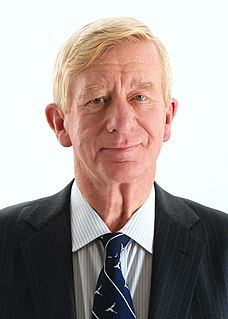A Quote by John Dunning
We have the knowledge, resources, and capabilities to make global capitalism work in a more inclusive and socially responsible manner while retaining - indeed enhancing - its economic benefits.
Related Quotes
Economists use the word consume to mean "utilize economic goods," but the Shorter Oxford Dictionary's definition is more appropriate to ecologists: "To make away with or destroy; to waste or to squander; to use up." The economies that cater to the global consumer society are responsible for the lion's share of the damage that humans have inflicted on common global resources.
Capitalism, the ogre of those protesting Wall Street, has suffered a public relations crisis in the wake of the global economic collapse. But any remedy to the systemic corruption that led to the collapse should not displace recognition that capitalism creates wealth. Capitalism, and no other economic system, has raised millions from poverty around the world.
In the early 1970s, Milton Friedman argued that corporations should not be socially responsible because they had no mandate to be; they existed to make money, not to be charitable institutions. But in the economy of the 21st century, corporations cannot be socially responsible, if social responsibility is understood to mean sacrificing profits for the sake of some perceived social good. That's because competition has become so much more intense.
Are global temperatures rising? Surely, they were rising from the late 1970s to 1998, but 'there has been no net global warming since 1998.' Indeed, the more recent numbers show that there is now evidence of significant cooling [...] Mankind is responsible for just a fraction of one percent of the effect from greenhouse gases, and greenhouse gases are not responsible for most of what causes warming (e.g., the Sun).
Despite global economic concerns, other nations are continuing to push forward and invest in their space capabilities. A U.S. withdrawal from the industry will only allow others to surge in their own capabilities, potentially impacting our national security and technology competitiveness in the future.
As a city powered by our country's knowledge economy, Toronto will continue to benefit from developing, attracting and retaining the world's most promising young researchers at the University of Toronto. Our government will continue to invest in research awards that lead to long-term social and economic benefits for Canadians.
Marx's own illusion was to think that the working class movement, which he devoted his life to creating and strengthening, would both be socially and politically successful in the industrial nations of Western Europe, and that it would develop an entirely new way of human social life that would retain and even enhance the productive benefits of capitalism while overcoming the inhumanity and exploitation of capitalist social relations. Marx himself had no solutions to these problems. His object of study was capitalism itself.






































